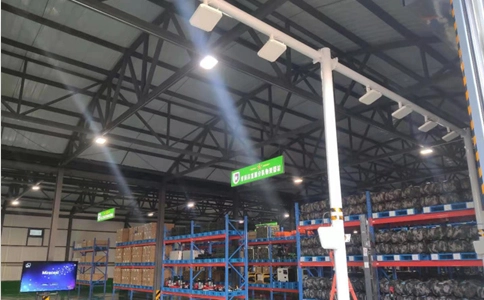Professional UHF RFID Readers Testing and Inspection
Introduction UHF RFID (Ultra-High Frequency Radio Frequency Identification) technology has gained significant popularity in recent years due to its numerous advantages in various industries. However, reliability and quality are crucial factors when it comes to using these UHF RFID readers, as the accuracy is essential
7 Common Factors That Can Effect The Read Range of A UHF Tag Reader
Ultra High Frequency (UHF) RFID is a radio frequency technology that is widely used in hotels, laundries, cloth, logistics, warehousing, retail, manufacturing, medical and other fields. The UHF reading distance is generally 3-5 metres and up to 20 metres. If with the external access
5 Factors That Can Effect The Number of Tags A UHF Tag Reader Can Read At One Time
In practical applications of RFID, there are often situations where a large number of tags are required to be read at the same time, such as the inventory of the number of goods in a warehouse, the inventory of the number of books in
10 Key Differences: Active RFID vs Passive RFID
There are two kinds of RFID systems that exist- passive and active. If you’re new to RFID, you might be wondering what the difference is between these types, and which one is best for your application. Below, we provide a short answer to these
4 Factors in the Environment to Affect RFID Deployments
Deploying an RFID application without consideration of the environment can potentially lead to thousands of dollars spent with less than stellar read rates. If positive results cannot be provided within the required timeframe, the project may be abandoned and the organization deprived of potential
What RFID Frequency is the Best Choice for Your Project?
RFID technology has become commonplace in our world and is a popular way to track the movement of goods — whether it’s a t-shirt moving around a retail store, a box entering a warehouse or a runner competing in a marathon. RFID stands for
6 Factors to Affect RFID Reading Range
Your RFID reader is connected to your antennas, you’ve adjusted your power settings, and you’ve applied your RFID tags to the items you want to track; however you’re having trouble reading your tags. Well, you’re in luck because this post will help you troubleshoot some of the common RFID
RFID vs NFC
RFID is the process by which items are uniquely identified using radio waves, and NFC is a specialized subset within the family of RFID technology. At a minimum, an RFID system comprises a tag, a reader, and an antenna. The reader sends an interrogating signal to the tag
RFID Vs Barcode
Many businesses are actively looking for inventory and process tracking technologies which fulfil their needs. Both barcodes and RFID (Radio Frequency Identification) technologies are regularly compared together when a business looks for a tracking solution. Using RFID as an alternative for barcodes is increasing








